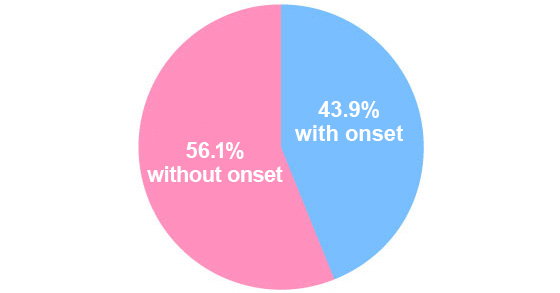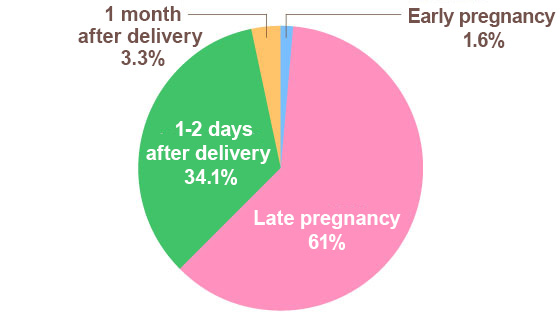
It is said that many troubles occur around the anal area during pregnancy and after delivery. The most common trouble is hemorrhoids.
According to an overseas study, it has been reported that more than 40% of women developed hemorrhoids (piles) or anal fissure, or both during the period from the early stage of pregnancy to 1 month after delivery (Reference: Graphs 1, 2)1). There are also overseas data showing that 85% of pregnant women developed hemorrhoids (piles) when the period was limited to the second and third trimesters2). There are also cases in which original hemorrhoids become worse due to pregnancy and delivery. Why are hemorrhoids likely to develop during pregnancy and at the time of delivery?

During pregnancy, a baby grows in the abdomen. As the uterus becomes large, the pressure is applied to the surrounding blood vessels and intestines, which results in poor blood circulation (congestion) and constipation that cause hemorrhoids. Increased secretion of a female hormone called progesterone also causes congestion and constipation.
In addition, during delivery, stitching a tear or incision in the perineum (between the vaginal opening and the anus) may damage perianal muscle or nerve and cause hemorrhoids, in addition to a heavy burden around the anal area due to straining. This is why hemorrhoids develop more often in late pregnancy to right after the delivery instead of early pregnancy or some time after delivery.

[References]
1) Poskus, T. et al: BJOG, 13: 1666, 2014.
2) Gojnic, M. et al: Clinical Experimental Obstetrics and Gynecology, 32: 183, 2005.
3) Masamichi Yasuno, et al.: Obstetrics and Gynecology, 83: 71, 2016.
4) Staroselsky, A. et al: Canadian Family Physician, 54: 189, 2008.